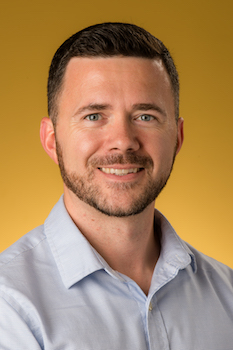Dr. McDaniel Presents at National Council for Geographic Education Conference

KENNESAW, Ga. (Oct 21, 2024) — Dr. Paul N. McDaniel, Associate Professor of Geography, recently presented at the 2024 National Council for Geographic Education (NCGE) 109th Annual Conference. The conference, held in Tempe, Arizona, brought together secondary and post-secondary geography educators, researchers, and professionals from across the country to share ideas and discuss best practices in the field.
Dr. McDaniel’s presentation, titled “Active and Experiential Learning in Geography through the Lens of a Local Urban Development Project,” co-authored with Dr. Ranbir Kang, Assistant Professor of Geography and Geospatial Sciences, focused on high-impact practice examples of incorporating use of the Atlanta BeltLine development for active and experiential learning. The presentation is one component of Dr. McDaniel and Dr. Kang’s larger project, “Assessing Implications of Human and Physical Geography in Public Art Landscapes of the Atlanta BeltLine,” funded by a Department of Geography and Anthropology 2023-2024 Intradepartmental Research Initiative Grant.
Metropolitan regions require innovative strategies for rapidly changing populations. One example is the Atlanta BeltLine, a major urban redevelopment program. With an estimated cost of $4.8 billion and projected economic impact of $10 billion, the Atlanta BeltLine is a nearly complete 22-mile loop of multi-use trails and planned transit on a former railway corridor encircling Atlanta, Georgia, one of the fastest-growing metro areas in the United States. There are intersections of both human and physical geography on the Atlanta BeltLine landscape, including an ever-changing collection of public art and murals that link to broader societal changes, current events, and public discourse around many topics intersecting with the social sciences and natural sciences.
The presentation highlighted examples of integrating a local urban development project such as the Atlanta BeltLine into geography education, fostering active and experiential learning and promoting high-impact practices such as field trips and undergraduate research. Examples include field trips and class activities and semester projects using geospatial technology like Google Earth and ArcGIS Online in Urban Geography courses, and incorporating undergraduate researchers for high-impact practice undergraduate research experiences. The presentation covered the following objectives for attendees:
- Identify and discuss ways to teach core geographic concepts through the lens of a local urban development project example within undergraduate geography courses, incorporating experiential learning methods such as fieldwork, mapping, and community engagement to enhance student learning outcomes.
- Examine ways in which to incorporate undergraduate research projects and other high-impact practices focused on a local urban development project fostering student collaboration, data collection, and analysis within the context of human and physical geography, while promoting geospatial technology proficiency, critical thinking and field-based research skills, and research ethics in geography education.
- Discuss cultivating collaborative learning environments that promote interdisciplinary dialogue and knowledge integration across geographic subfields, encouraging students to integrate concepts from across human and physical geography within the context of a local urban development project.
The National Council for Geographic Education (NCGE) was founded in 1915 to enhance the status and quality of geography teaching and learning. NCGE promotes geographic teaching by providing professional development opportunities, producing journals and other geography publications (such as the peer-reviewed Journal of Geography and The Geography Teacher), developing and distributing content and resources, honoring teachers, mentors and researchers; advocating for geography in schools; and organizing an annual conference and other forums for educators. NCGE is committed to ensuring that all students graduate with the knowledge, perspectives and skills to make informed decisions as they go through life.











